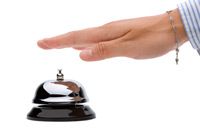You are viewing our site as a Broker, Switch Your View:
Agent | Broker Reset Filters to Default Back to ListMasters of Customer Service
July 02 2012
 In a world where change is an ever-accelerating force and the body of knowledge is nearly doubling every four years, learning is not just kid's stuff, it's adult survival. At a time when attendance at business and professional schools is at an all-time high, participation in industry-related education programs is significantly off.
In a world where change is an ever-accelerating force and the body of knowledge is nearly doubling every four years, learning is not just kid's stuff, it's adult survival. At a time when attendance at business and professional schools is at an all-time high, participation in industry-related education programs is significantly off.
Cutting-edge ideas and applications that once took five years or more to cycle into use from research centers and universities are now impacting business and society in less than a year - keeping up is ever more difficult.
Just as staying "in shape" and physical conditioning are essentials for competitive athletes, mental conditioning and learning are essentials for top competitors in business. The newest field of study is the science of service--the new business science.
Service as a science is an emerging field of learning and study for organizations and professionals who are serious about their business. Since service now claims two-thirds of the world economy and greater than 80% of the U.S. economy, that is serious business. New concepts, principles, applications, and metrics have been developed that will raise both the standards of service and the level of competition.
The study of service at its most basic focuses on The Three R's of Service: Reliability, Responsiveness and Relationship.
Reliability
It's clear that consumers expect reliability from professional service providers. It is also clear that those expectations rise with the prices paid for professional services. Value and satisfaction are tied to reliability. Reliability benefits from the study and examination of service as a science. Understanding the principles and the effective applications of service systems, and adopting standards and measurements are all highly influential in managing service reliability. The world has moved beyond attitude and good intentions as the basis for service.
According to Clayton Christensen, author and professor at the Harvard Business School, once a product or service credibly satisfies the market's demand for functionality the focus shifts to reliability. Then without a significant improvement in reliability, competitors find themselves in a price war. At the same time, companies able to effect an improvement in reliability are able to earn premium prices.
Responsiveness
Sometimes customers want efficiency. They want facts, information or data quickly. Who provides the data is probably less important than availability and immediacy. At other times the same clients want advice, counsel or judgment. And who provides that is important.
If service and responsiveness are to be maximized, delivering efficiency or counsel to the right customer at the right time and in a cost-effective manner requires some new thinking. Specialization, systems and teamwork in real estate services are replacing the Renaissance man or woman--the "one-person-does-it-all" model.
Fixing things when they go wrong, taking responsibility, responding quickly and being there at the rough times build even stronger client confidence and loyalty than the smooth transaction.
Having an organized response system in place for when things go wrong and measuring the final results are essential to effective problem solving and good customer service. Systems and teamwork--not much of this is intuition. The science of service has a growing body of knowledge based upon observation, study and successful experimentation. We can learn and build on what is all ready known and developed.
Relationship
At the foundation of reliability and responsiveness in a professional relationship is the person upon whom we place our trust. Trust is the most important element in a relationship. And trust for today's consumer is less about style and personality than it is about competence, skill, accountability, and communication.
Consumers today have more information, know and expect more. While they have less time, in some ways they want to participate more. Consumers are increasingly looking to their service professional more for judgment than information. That makes the role of the service professional more difficult. The role of a caring, competent professional is also more valuable and more assured.
To effectively serve today's consumer, today's service professional must be a master of the science of service, the new business science, and that will require greater competency and ongoing study. Summer may be here, but learning is a lifelong process.
Quality Service Certification, Inc. offers graduate level resources to help you and your organization become Masters of Customer Service. For nearly 15 years, QSC has provided real estate professionals who are serious about service with the industry's best resources for measuring, managing and improving customer satisfaction. For more information, go to QualityService.org or call (888) 547-4772.









